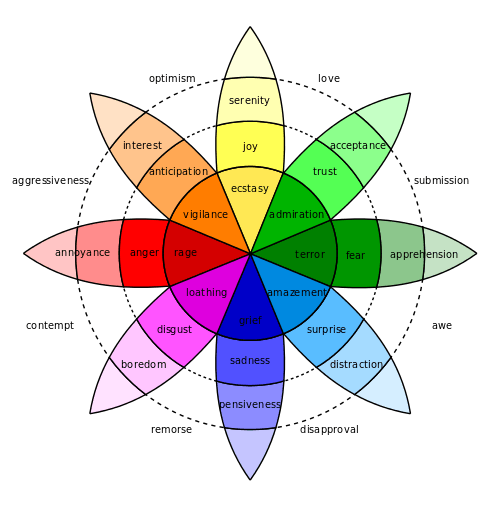Confusion
Confusion (from Latin confusĭo, -ōnis, from confundere: "to pour together;" "to mingle together;" "to confuse") is the state of being bewildered or unclear in one’s mind about something.
Medical term
| Mental Confusion Classifications | |
|---|---|
| Classification and external resources | |
| Specialty | Psychiatry |
| ICD-10 | R41.0 |
| ICD-9-CM | 298.9 |
| MedlinePlus | 003205 |
| MeSH | D003221 |
The term "acute mental confusion"[1] is often used interchangeably with delirium[2] in the International Statistical Classification of Diseases and Related Health Problems and the Medical Subject Headings publications to describe the pathology. These refer to the loss of orientation, or the ability to place oneself correctly in the world by time, location and personal identity. Mental confusion is sometimes accompanied by disordered consciousness (the loss of linear thinking) and memory loss (the ability to correctly recall previous events or learn new material).[3]
Causes
Confusion may result from drug side effects or from a relatively sudden brain dysfunction. Acute confusion is often called delirium (or "acute confusional state"),[4] although delirium often includes a much broader array of disorders than simple confusion. These disorders include the inability to focus attention; various impairments in awareness; and temporal or spatial dis-orientation. Mental confusion can result from chronic organic brain pathologies, such as dementia, as well.
Other causes of confusion
- Alcoholism〰
- Aluminium Toxicity
- Anemia
- Anxiety〰
- Brain Damage〰
- Brain Tumor〰
- Brief Psychotic Disorder
- Concussion〰
- Dehydration〰
- Encephalopathy
- Depression〰
- Fatigue
- Fever〰
- Brain Injury
- Heat Stroke〰
- Hypoglycemia
- Hypothermia
- Hypothyroidism
- Jet Lag
- Kidney Failure
- Kidney Infection (Pyelonephritis)
- Lassa Fever
- Lewy Body Dementia
- Listeria
- Lyme Disease
- Meningitis
- Postpartum Depression
- Reye's Syndrome
- Rocky Mountain Spotted Fever (RMSF)
- Schizophrenia
- Seizure (Epilepsy)
- Shock (Medical)
- Sick Building Syndrome
- Sleep Apnea
- Stroke
- Yellow Fever
- STDs in Men
- Streptococcal Infections
- Toxic Shock Syndrome (TSS)
- Transient Ischemic Attack (TIA, Mini-Stroke)
- West Nile Virus[5]
Differential diagnosis
The most common causes of drug induced acute confusion are dopaminergic drugs (used for the treatment of Parkinson's disease), diuretics, tricyclic or tetracyclic antidepressants and benzodiazepines. The elderly, and especially those with pre-existing dementia, are most at risk for drug induced acute confusional states.[6] New research is finding a link between Vitamin D deficiency and cognitive impairment (which includes 'foggy brain').[7]
See also
References
- ↑ Confusion Definition; Oxford Dictionary online.
- ↑ Delirium; Symptom Finder online ; accessed .
- ↑ thefreedictionary.com Citing: Dorland's Medical Dictionary for Health Consumers; 2007; Saunders.
- ↑ Acute Confusional State; Dr. Gurvinder Rull; patient.info; Document ID/Version/Reference: 1714/22/bgp2104; updated: 13 Jan 2009; accessed: when?.
- ↑ Confusion, Retrieved 3rd February 2016.
- ↑ Hufschmidt, A.; Shabarin, V.; Zimmer, T. (Dec 2009). "Drug-induced confusional states: the usual suspects?". Acta Neurologica Scandinavica. 120 (6): 436–8. doi:10.1111/j.1600-0404.2009.01174.x. PMID 19804475.
- ↑ Vitamin D Linked to Cognitive Impairment; Third Age online; accessed: .
External links
| Wikimedia Commons has media related to Confusion. |
